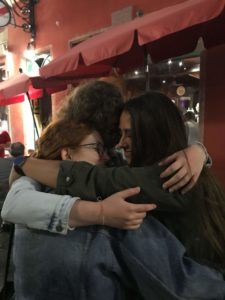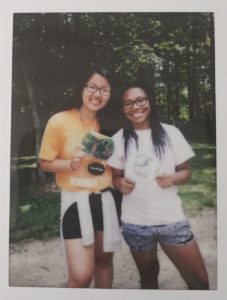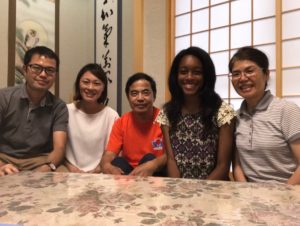Seaira Lett
When I achieved competency in Spanish (though of course not perfection), I felt like a whole new world opened up to me; I could now understand so much more literature and music, talk to a whole new population of the world, and just experience things that I didn’t as a monolingual. I even had the opportunity to read Christopher Columbus’s first letter back to Spain informing about the Americas in its original language. Learning Spanish has had a huge impact on who I am today and has become an important part of my life.
According to Emory University, a liberal arts education “is not technical training for a single field. Rather it’s an intellectual grounding in many fields… It’s a foundation for you, but also for society, preparing you to serve, lead, and—yes—change the world.” Multicultural and multilingual competency is essential in our diverse world. In order to serve and lead, it’s necessary to communicate, understand, and empathize with others, especially those who are very different from you.
We all have the responsibility of gaining this competency not only to comprehend other cultures, but to break stereotypes about our own cultures through cross-cultural communication. A well-known example is the stereotype that all Anglo-Americans are monolingual and uninterested in other cultures, so for one to learn another language subverts this view.
In my experience speaking Spanish in everyday situations, such as the check-out at a Mexican grocery store, people always have positive reactions, and many times it starts a conversation in which I’m asked how I learned Spanish. These interactions are especially important to me because after a short conversation you can shape someone’s image of your country or culture. By learning another language, you start a cross-cultural discussion, in which you connect with people you wouldn’t have otherwise connected with. This is precisely how we can change the world, by bringing different people closer together and forming positive relationships with them.
Native speakers of English have a privilege, since English is internationally considered a prestigious language, and publications in English dominate academic fields. In the US, other languages are devalued despite the existence of many communities whose primary language isn’t English. By learning another language, Anglophones can use their privilege to give a voice to cultures that don’t usually have a place in Anglophone discourse.
Studying foreign language and culture is crucial to any education. Along with the impact it ultimately has on the world, it will change your life. Not only is it incredibly fun and exciting (e.g. trying new food!), but it puts you in situations you otherwise wouldn’t be in. It brings you closer to so many different people. It constantly reminds you how big and diverse the world really is. Your perspective becomes much broader and you see things that you hadn’t seen before. You become much more empathetic and tolerant of others, and you develop a curiosity and a desire to learn, to try new things, and to see new places. It takes you out of your comfort zone and pushes you to grow, and through this type of experience leaders are created. Also, there is something magical about being able to consult foreign texts in their original words- whether it’s a pop song or an academic paper.










